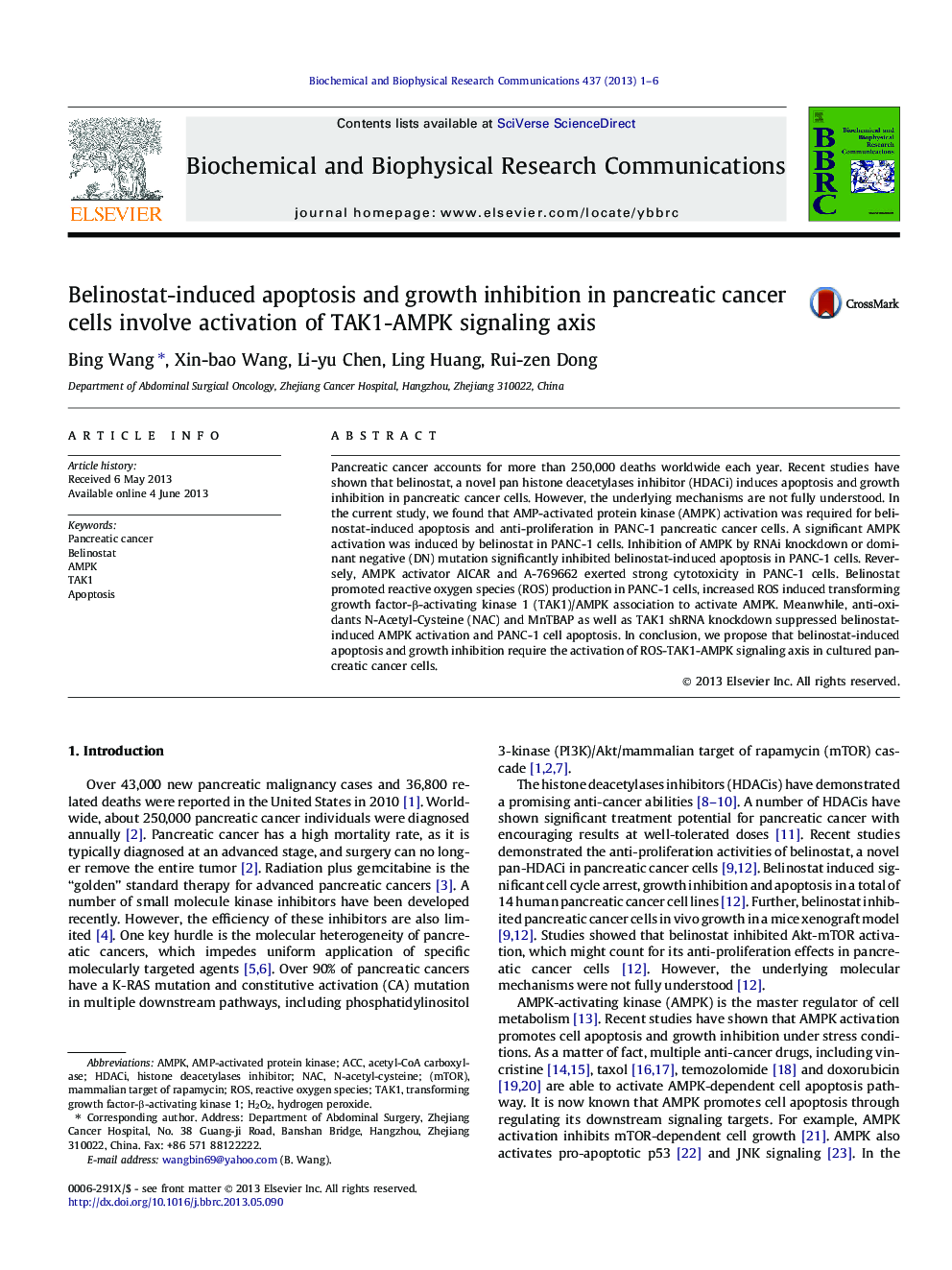| Article ID | Journal | Published Year | Pages | File Type |
|---|---|---|---|---|
| 1928659 | Biochemical and Biophysical Research Communications | 2013 | 6 Pages |
Abstract
Pancreatic cancer accounts for more than 250,000 deaths worldwide each year. Recent studies have shown that belinostat, a novel pan histone deacetylases inhibitor (HDACi) induces apoptosis and growth inhibition in pancreatic cancer cells. However, the underlying mechanisms are not fully understood. In the current study, we found that AMP-activated protein kinase (AMPK) activation was required for belinostat-induced apoptosis and anti-proliferation in PANC-1 pancreatic cancer cells. A significant AMPK activation was induced by belinostat in PANC-1 cells. Inhibition of AMPK by RNAi knockdown or dominant negative (DN) mutation significantly inhibited belinostat-induced apoptosis in PANC-1 cells. Reversely, AMPK activator AICAR and A-769662 exerted strong cytotoxicity in PANC-1 cells. Belinostat promoted reactive oxygen species (ROS) production in PANC-1 cells, increased ROS induced transforming growth factor-β-activating kinase 1 (TAK1)/AMPK association to activate AMPK. Meanwhile, anti-oxidants N-Acetyl-Cysteine (NAC) and MnTBAP as well as TAK1 shRNA knockdown suppressed belinostat-induced AMPK activation and PANC-1 cell apoptosis. In conclusion, we propose that belinostat-induced apoptosis and growth inhibition require the activation of ROS-TAK1-AMPK signaling axis in cultured pancreatic cancer cells.
Keywords
Related Topics
Life Sciences
Biochemistry, Genetics and Molecular Biology
Biochemistry
Authors
Bing Wang, Xin-bao Wang, Li-yu Chen, Ling Huang, Rui-zen Dong,
